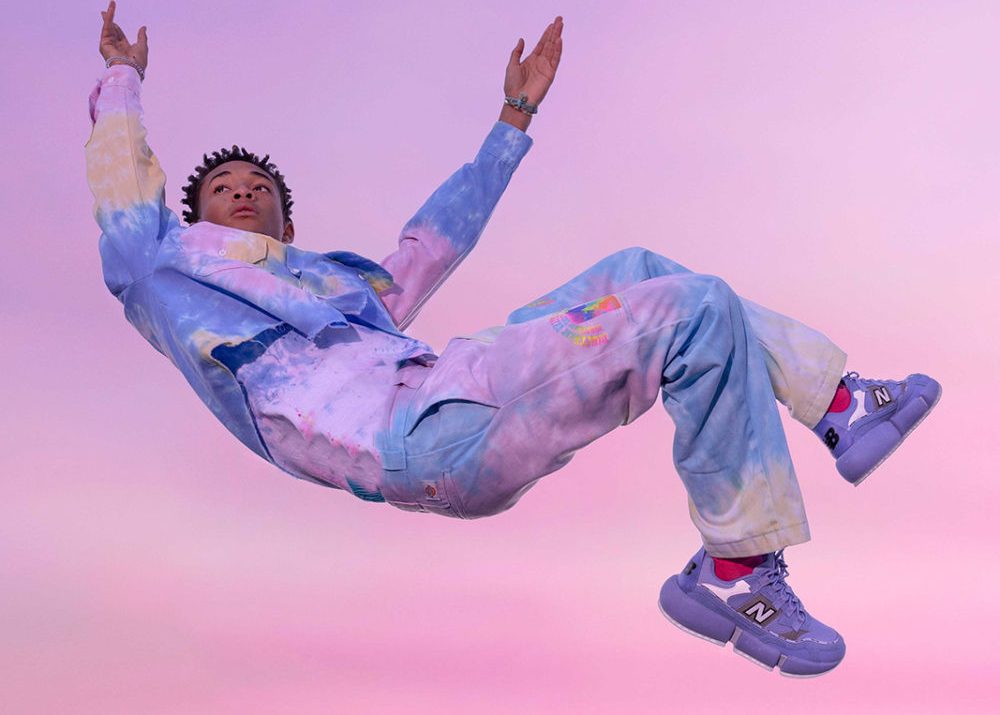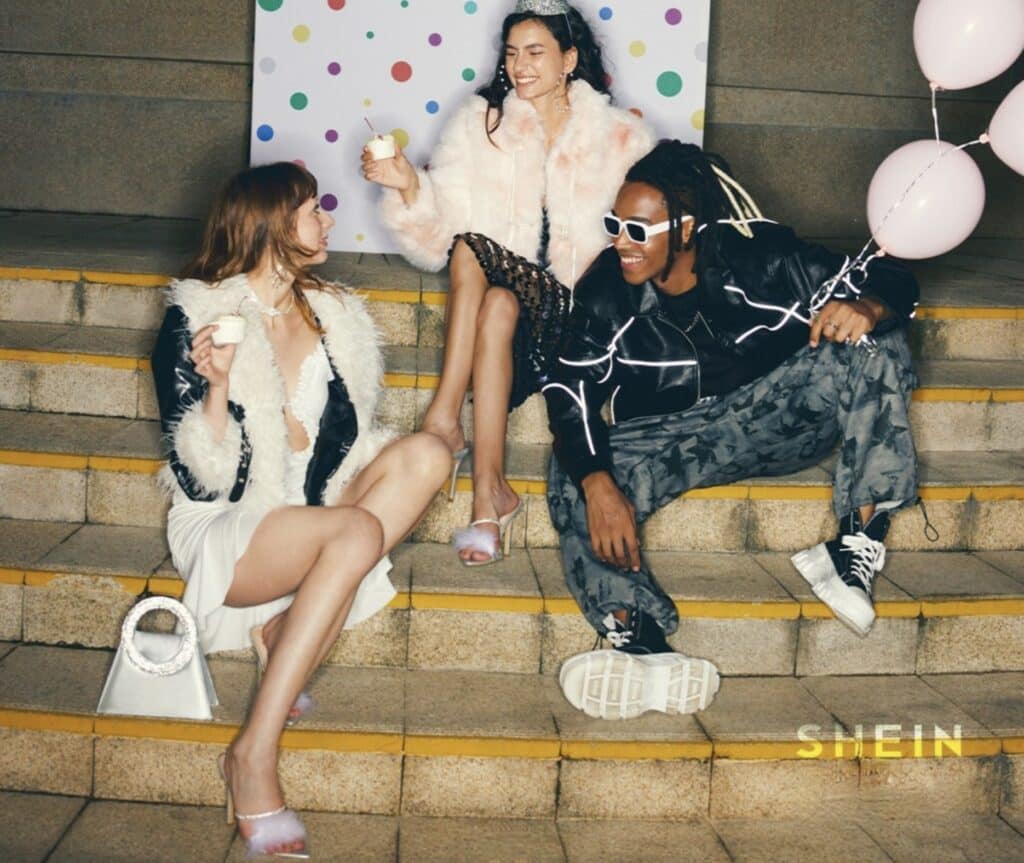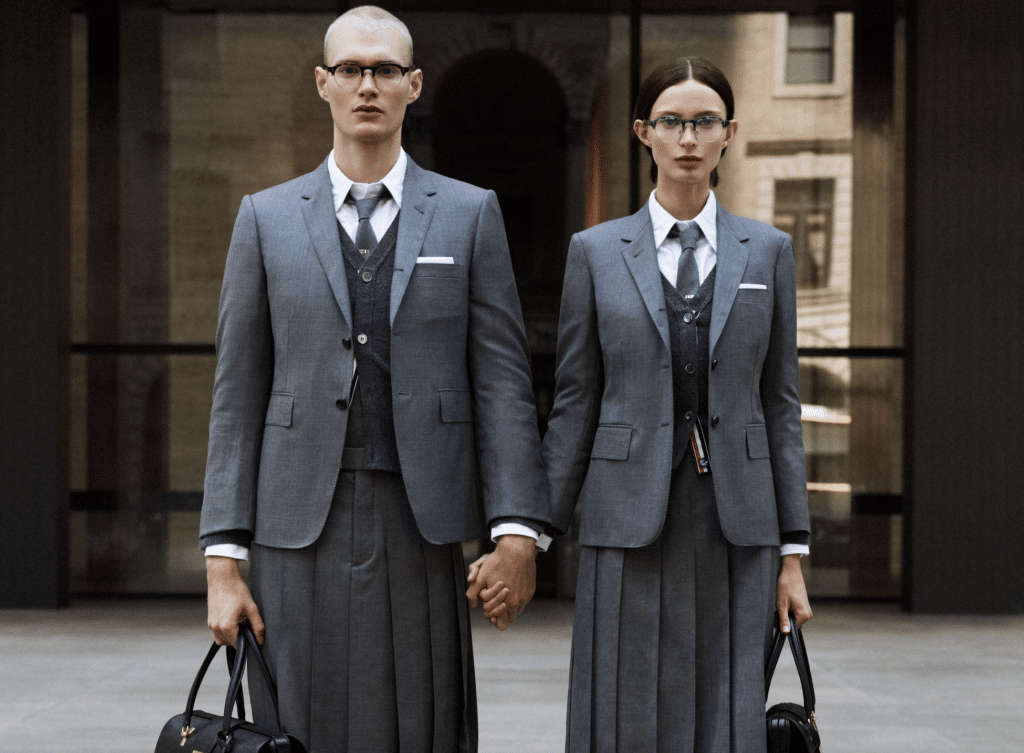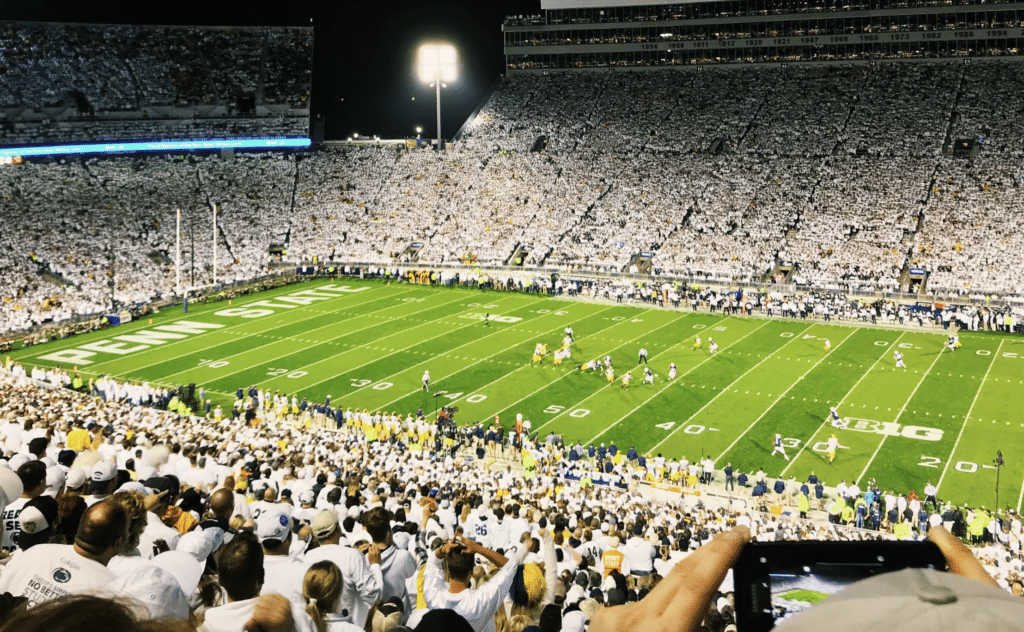New Balance is in hot water over its ongoing partnership with buzzy young creative Jaden Smith. The Boston-based sportswear company is on the receiving end of a multi-million dollar lawsuit in which ABG Collective is accusing it of marketing and selling a line of sneakers that “bear designs and symbols that are substantially and confusingly similar to” the trademarks of the well-known Vision Streetwear brand that it acquired in 2014, and as a result, ABG alleges that New Balance is engaging in trademark infringement and counterfeiting.
According to the complaint that it filed with the U.S. District Court for the Southern District of New York on Monday, ABG Collective claims that “since at least as early as 1986, the VISION trademarks” – from the “Vision” and “Vision Streetwear” word marks to the Vision Streetwear logo, for which it maintains “incontestable” trademark registrations for use on clothing and footwear – “have been continuously used on footwear products and a variety of related goods and services” by Vision Streetwear.
As a result of its “promotion, marketing, advertising and use of the VISION trademarks during the past 30-plus years,” ABG alleges that “the public and the trade have come to recognize [those] marks as exclusively identifying high quality products and services emanating from a single source of origin,” Vision – which it describes as “as one of the original and most respected street wear brands, renowned for bridging the gap between the worlds of fashion, skating, and music.” Or in other words, ABG asserts, the various VISION trademarks “have gained secondary meaning and extensive marketplace goodwill.”
Against that background, ABG – which is an arm of Authentic Brands Group, the New York-based brand management company in the news for buying up bankrupt brands like Barneys, Forever 21, and Brooks Brothers – argues that New Balance co-opted its trademarks, namely, its “Vision” word mark, when it partnered with Jaden Smith in 2019. While ABG “never licensed or authorized [New Balance] to use the VISION trademarks in any manner,” the footwear company has “manufactured, advertised, marketed, distributed, offered for sale, and sold … footwear products bearing identical and confusingly similar imitations of the VISION trademarks.”
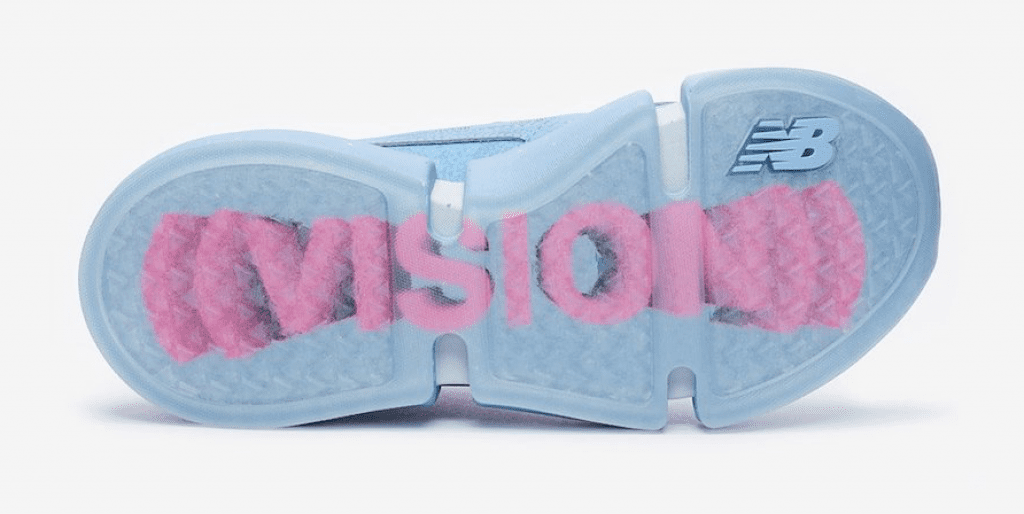
Due to the similarity between the marks and the types of products at issue (which are “identical” to those covered by Vision Streetwear’s trademark registrations), and in light of the fact that New Balance’s allegedly goods and Vision Streetwear’s own authentic goods “are sold through identical and overlapping channels of trade, ABG claims New Balance is “likely to deceive, confuse, and mislead actual and prospective purchasers before, during, and after purchase into falsely believing that [its] infringing products are manufactured by, licensed by, authorized by, or otherwise approved by [Vision]” when they are not.
As such, New Balance’s “actions are likely to cause initial interest, point-of-sale and/or post-sale confusion to the irreparable harm and detriment of [ABG] and the substantial goodwill it has developed in the VISION trademarks,” ABG goes on to claim, arguing that New Balance “knowingly, willfully, intentionally, and maliciously adopted and used identical and confusingly similar imitations of the VISION trademarks on [its good in order] to mislead and deceive consumers into believe that [they] are licensed or authorized by, or emanate from, [ABG and Vision], and to free-ride and otherwise trade on the substantial marketplace goodwill and reputation of [ABG and Vision] embodied in the VISION trademarks.”
More than merely engaging in trademark infringement (i.e., the unauthorized use of another party’s trademark on or in connection with goods and/or services in a manner that is likely to cause confusion about the source of the goods and/or services), ABG alleges that New Balance’s manufacture and sale of the sneakers that include the word “VISION” meets the higher standard of counterfeiting because it has “intentionally use[d] spurious marks that are counterfeits of, identical to, and substantially indistinguishable from” VISION’s trademarks on the same types of goods for which Vision maintains federal trademark registrations, namely, sneakers. (It will be interesting to see whether New Balance’s use of the “VISION” word mark, alone – and not in conjunction with sneakers that actually look anything like New Vision Streetwear’s footwear offerings – will be enough to give rise to a finding of counterfeiting).
With that in mind, ABG claims that New Balance’s “illicit activities have caused and, unless enjoined by this Court, will continue to cause a likelihood of confusion and deception among members of the trade and public, and, additionally, irreparable injury to [ABG and Vision’s] goodwill and reputation as symbolized by its federally registered VISION trademarks.” The company is seeking monetary damages of up to $2,000,000 per counterfeit mark per type of goods or services sold, offered for sale, or distributed, among other damages, as well as injunctive relief.
Meanwhile, despite Kanye West co-opting a variation on Vision Streetwear’s trademark-protected logo for his presidential run, slapping a lookalike logo on a campaign poster, and then on an array of merch, ABG has not taken action in the form of trademark litigation.
A rep for New Balance did not respond to a request for comment.
*The case is ABG Collective LLC v. New Balance Athletics Inc., 1:20-cv-08931 (SDNY).




